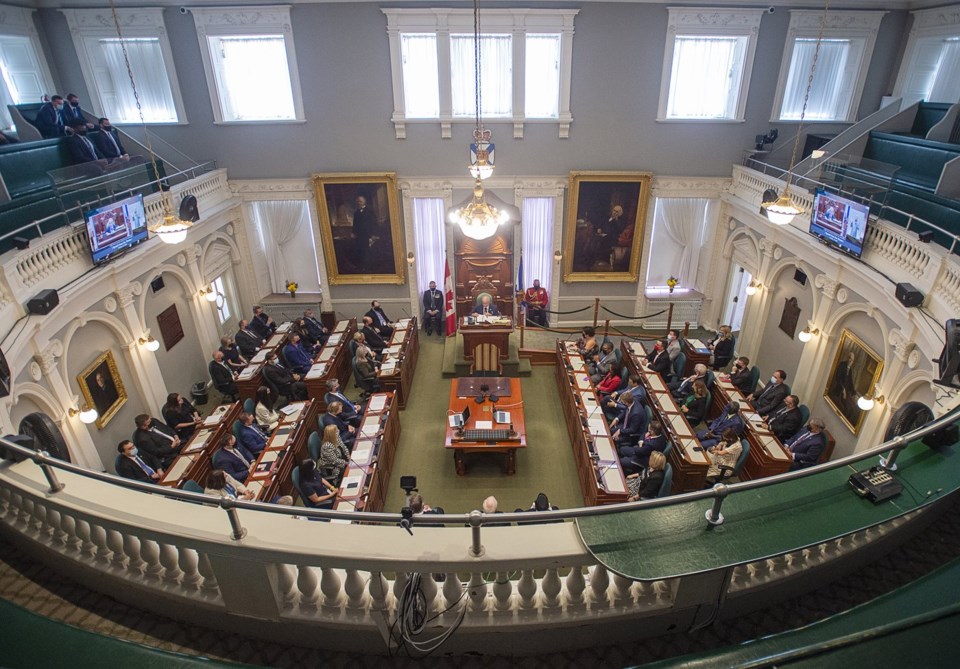HALIFAX — A provincial official acknowledged Tuesday that some Nova Scotia landlords are abusing fixed-term leases, but the government is not looking to change tenancy law because there could be "unintended consequences."
Gary O’Toole, associate deputy minister of Service Nova Scotia, told the legislature’s community services committee that before any changes can be made, the department needs to understand the long-term impact.
“Certainly we are aware anecdotally through our conversations with landlords and tenants that fixed-term leases are being used inappropriately,” O’Toole said. But he added that such leases, which allow for rentals shorter than a year, are valuable to tenants in certain circumstances.
“We know that they help in situations where someone is here temporarily for work or student housing or any number of other situations,” he said. When asked by reporters he was unable to give an example of an unintended consequence the government is trying to avoid.
Unlike a periodic lease, a fixed-term lease does not automatically renew beyond its set end date. The provincial rent cap covers periodic leases and situations in which a landlord signs a new fixed-term lease with the same tenant, but it does not cover fixed-term leases with new tenants.
O’Toole noted that the government needs to take into account inflationary costs and the vacancy rate, which he said has risen over the last year from one to two per cent.
Heather Clark, chair of the Halifax chapter of housing advocacy group ACORN, told the committee that according to a 2024 report by her group, evictions had increased 466 per cent since 2021 through the use of fixed-term leases.
“Only two out of 243 people (surveyed) on a fixed-term lease needed a short-term rental. The remainder wanted long-term accommodations,” Clark added.
However, department official Melissa Mosher said it’s hard to get a clear picture because there are no provincial statistics to track the use of fixed-term leases. The department would need to have a registry of all tenants and landlords in the province, she said.
Last fall, a number of landlords defended the use of fixed-term leases before another legislature committee, saying it helped them recoup costs in the face of the government’s five-per-cent cap on rent increases.
Mark Culligan, of Dalhousie Legal Aid, said the government’s stance doesn’t make any sense, telling reporters that the use of fixed-term leases amounts to a “handout” to landlords. Culligan also said he doesn’t think the current housing crisis is going to go away any time soon.
“The government kept saying the vacancy rate has increased to two per cent, but a healthy vacancy rate should be between three and five per cent,” he said.
The opposition NDP tabled legislation in March that would give tenants on fixed-term leases the option of extending on a month-to-month basis if they want to remain.
“I don’t think the measures that are in place right now are strong enough to do the work that needs to be done in order for us to protect tenants and landlords,” said NDP committee member Suzy Hansen.
Liberal Leader Iain Rankin said it’s clear the government wants to give landlords “a way around the rent cap.”
“The leverage is (with) the landlord and the government wants it that way,” he said.
This report by The Canadian Press was first published May 6, 2025.
Keith Doucette, The Canadian Press



